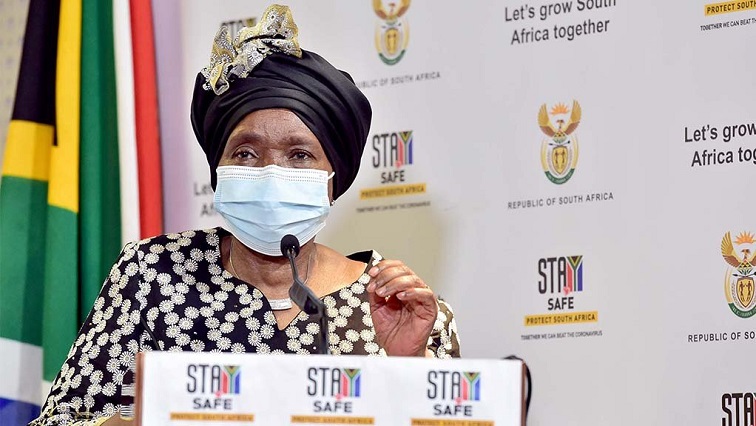Cooperative Governance and Traditional Affairs Minister, Nkosazana Dlamini-Zuma, says the closing date for public comment on the no-fault compensation fund was not rushed to exclude public opinion.
She was responding to questions during a virtual briefing of Parliament’s Cooperative Governance and Traditional Affairs Committee.
Government took flak for publishing publishing the COVID-19 vaccine injury no-fault compensation scheme on April 17, urging the public to air their views on it until April 19.
Minister Dlamini-Zuma says it was a tough choice. She says extending publication of comment would have resulted in a delay in South Africa receiving the vaccines from the manufacturers that had various conditions.
One of the conditions was for government to gazette the No-Fault Compensation Fund.
The fund will be accessed by citizens who experience complications or complaints resulting from COVID-19 vaccines. It also protects manufactures against liability.
Dlamini-Zuma says: “We were faced with a very difficult choice, because the vaccine manufacturers were bringing a lot of conditions to the health department and so, until they had finished all the agreements, we were not be able to publish anything. But once they finished the agreement, they said they will not finish the vaccines unless this No-Fault Compensation Scheme has been enacted.
So, if we had extended the publication for comment, then it would have meant that we would have a much longer delay for the vaccines to be released by the manufacturers so that they can be transported to South Africa. So, that was the dilemma we were faced with. It’s not that we were insensitive to the people’s opinions.”
The Minister insisted that the public can still comment on the regulation, saying that it can be improved in future. Once established, the fund will deal with medical complaints linked to COVID-19 vaccines.
Health Minister, Dr Zweli Mkhize, says establishing it is an international trend and is also aimed at protecting South African citizens.
“You report to the office, assign compensation. No need for money, no lawyer, just walk through the office and it’s done. If you don’t like the decision, you can take the whole fund to court for review, but all the experts would’ve been there to assess you and I think the important thing is the protection of our people. It’s a human rights issue,” he says.


